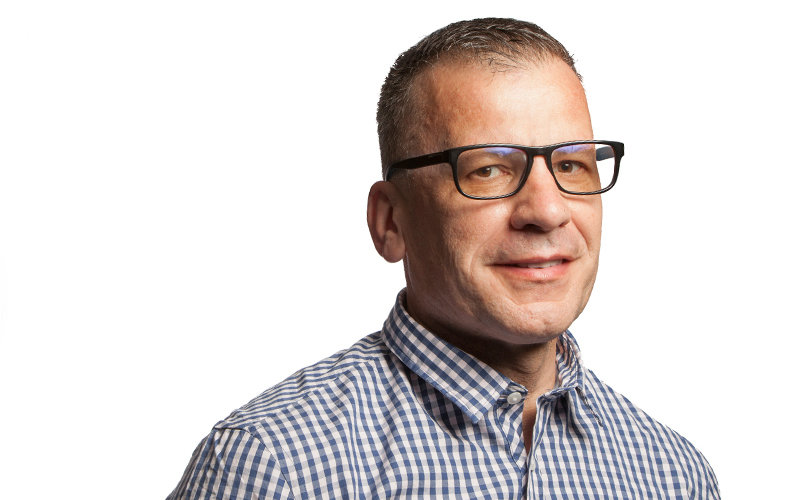
With more than a decade of library science experience, Robert Tomaszewski joined Cal State Fullerton as an associate librarian earlier this year. Hailing from London, the chemist-turned-librarian discovered his passion for the field while completing postdoctoral work in polymer science at the University of Waterloo.
Tomaszewski holds a doctorate in chemistry from the University of Utah and a master of information studies in library science from the University of Toronto. He also is a member of the Special Libraries Association and the American Chemical Society.
What inspired you to go into the field of library science?
My interest in library science started while I was a postdoctoral researcher, studying the synthesis of a series of explosive materials called novel aromatic azides. This procedure had a history of blowing off the fingers of other laboratory researchers. Rather than making these explosive compounds without a known procedure, I decided to visit the library.
First, I searched the print Chemical Abstracts, but later discovered the SciFinder database, which provided access to the abstracts with the click of a mouse. I was so impressed with this new research tool that I shared it with my colleagues and immediately became the laboratory librarian. Discovery of my talent for working with scientific information inspired me to earn a degree in library science.
What are your research interests?
My research interests include database training techniques in laboratories, evaluating and comparing Wikipedia citations in journals, the impact and life cycle of open-access journals, and outreach of library services to the science disciplines, such as publishing in pedagogy journals.
How can students better take advantage of CSUF’s Pollak Library?
One way students can take better advantage of the library is by communicating with a subject librarian expert for help with their research and assignments.
What changes do you envision in your field five years from now?
I suspect libraries will continue embedding more technology and moving toward the digital arena. This will range from an increase in access to materials, such as e-books, to a greater emphasis on data curation, or integrating research data and digitized archival collections into institutional repositories. Ultimately, I see a need for credible information to become more accessible, real-time and ubiquitous, especially through the smart phone.
What’s your favorite book?
My favorite book is “The Diary of Anne Frank.” This book provides real, inspirational and moving thoughts of a 13-year-old teenager in her diary while living through World War II. One of her entries on July 15, 1944, before she and her family were taken to the concentration camps, states, “In spite of everything, I still believe people are really good at heart.”
See the complete list of new tenure-track faculty members joining CSUF this fall.